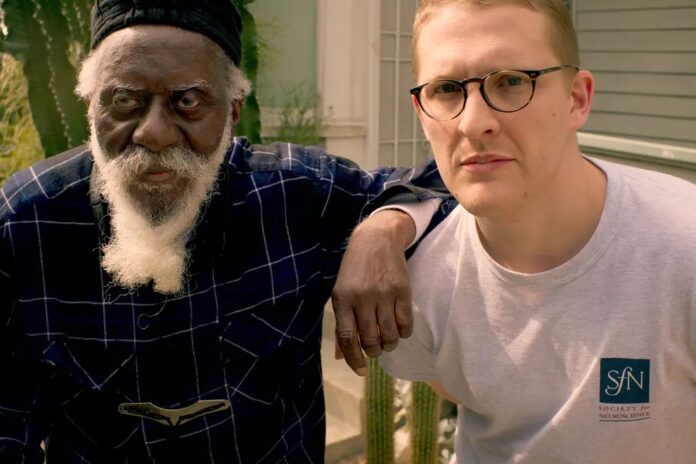There are wonders to be found on Promises (Luaka Bop), the new album from Floating Points, Pharoah Sanders, and the London Symphony Orchestra. By the end, they don’t add up to much more than a good soundtrack for walking through an upscale neighborhood. A lot of money and time has clearly been thrown into this project, and risks seem to have been avoided in favor of pleasantness.
Strings swirl in searching glissandos, always a few inches short of resolving. Shepherd and the London Symphony Orchestra do a wonderful job of creating an environment, which Sanders’ soloing seems to comment on. The mood is floral, ornate, a little ominous in a fairy-tale way. On the surface, it sounds every bit like the ‘60s/‘70s spiritual-jazz classics Sanders is associated with, like his Karma or Alice Coltrane’s Ptah the El Daoud.
The difference is that on those albums, Sanders sounded like he was fighting for dear life. 1969’s “The Creator Has A Master Plan” might start with the same hesitant notes and Bombadillian dum-dum-dums we find here, but by its midpoint Sanders sounded like he was climbing a mountain with bleeding fingernails so he could stand on its summit and broadcast his message to the world. The stakes let you know that his playing was really about something. Here, he sounds barely bothered to be roused, and his characteristic grit is like sand at the bottom of his tone rather than a central textural element. He seems like a guest of honor who’s been seated comfortably and told he doesn’t have to do much.
The piece is split into nine movements, but it can really be divided into three. The first is a showcase for Sanders, who wanders over terrifically tactile florets of harpsichord and bells played by Floating Points, a.ka. the English electronic artist Sam Shepherd. The second is an all-stops-pulled-out showcase for the London Symphony Orchestra, who swell to the heavens and do exactly what you hire the London Symphony Orchestra to do. The third is dominated by electronics, which eventually blur into an organ drone, and then the piece stops, as if it’s finally nodded off to sleep.
The problem with this structure is it gives nobody anything to push against. Behind Sanders the strings are shy, polite, and flattering. The harpsichord flowers stay in mid-bloom for the whole piece, and Shepherd’s electronics at the end don’t do much besides dim the lights. If Sanders, the orchestra, and the producer had worked together to push the music in and out of fever pitch, it would have worked better than everyone taking turns, refusing to break free unless called upon to do so. I wonder if a better fit for this collaboration than Shepherd would’ve been the Chicago acid-house avant-gardist Jamal Moss, whose 303 shares some of Sanders’ grit.
While this is very good ambient, that’s a low bar for a supergroup with this pedigree. Shepherd needs to show some of the same peacocking he does in giving himself top billing, and pick a little fight with Sanders rather than simply ingratiating himself.
Promises is available from Luaka Bop here.







